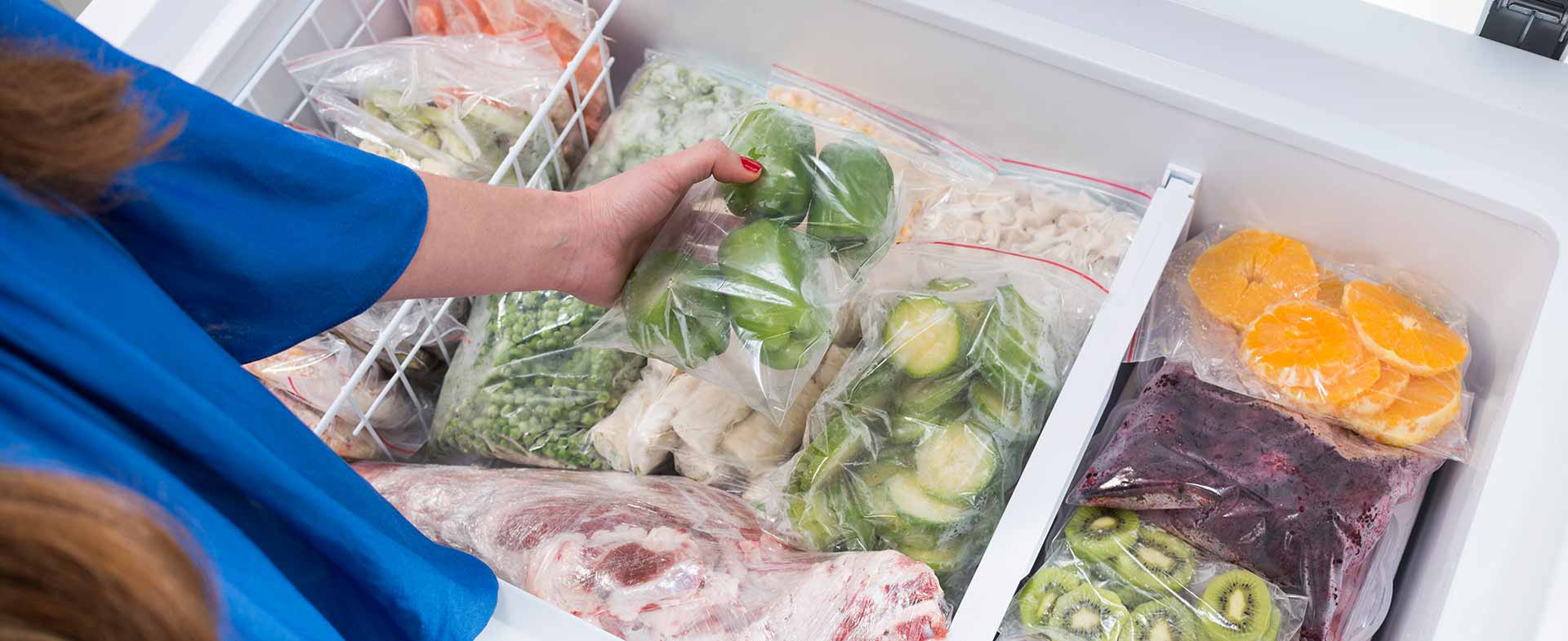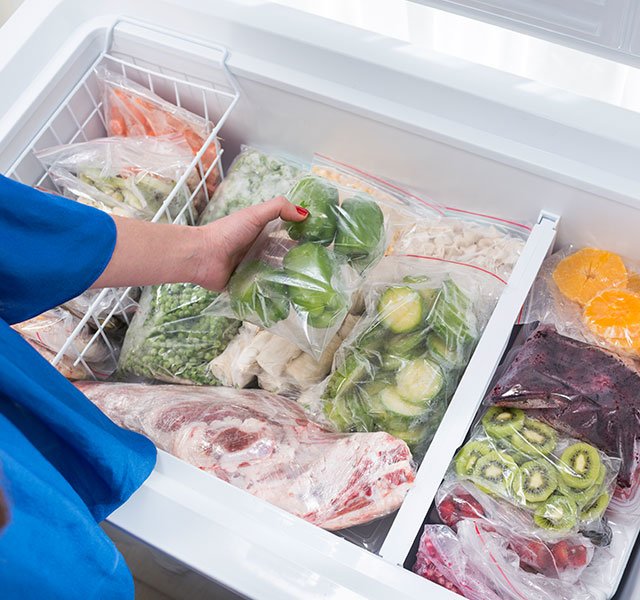In the early weeks of the pandemic, shoppers stocked up on fresh foods, leaving produce aisles stripped and meat counters bare. At the same time, sales of canned and frozen foods surged. But are fresh foods really better than canned or frozen? Are we doing ourselves a disservice by choosing frozen peas or canned tuna?
According to Halle Saperstein, a registered dietitian at Henry Ford Health, if fresh is not an option for you, there are healthier types of canned and frozen produce. The key, of course, is focusing on eating healthful foods, no matter how they're packaged.
Fresh, Frozen, Canned
While you'll get similar nutrients whether foods are fresh, frozen or canned, it's important to note that there are differences between them. Here's how it breaks down:
Fresh
Nothing beats fresh fruits and vegetables plucked straight from the garden. That’s as nutritious as produce gets. "The problem is, there's a short window when fresh fruits and vegetables are available, especially in Michigan, " Saperstein says.
Even in season, fresh produce often has to travel long distances before it's placed on grocery store shelves. During the time between harvest and first bite, produce can lose some of its nutritional value. Taste and texture can take a hit, too. The same rules apply to meats like fish and poultry.
Fresh tip: When possible, get foods of all types from the local farmer's market. Buying local, organic and freshly harvested often means your food not only packs more nutrients, it may taste better, too.
Frozen
In general, frozen fruits and vegetables are minimally processed, and their nutrients are usually not lost during freezing. In fact, fresh and frozen versions of the same food have similar nutrient profiles. "They're picked ripe and processed within hours of harvest, so they retain their nutrients, color, flavor and smell," Saperstein says. "Plus, the risk of pathogens infiltrating your food is much lower than fresh."
Frozen vegetables are picked at peak ripeness, washed, cut and blanched, meaning they're dunked quickly into hot water, which can affect the nutritional value, but only slightly. The key drawback: taste. While blanching inactivates the enzymes that allow produce to change in color, taste and flavor, it can also reduce the food's just-harvested flavor.
Frozen fruit is often treated with ascorbic acid (a form of vitamin C) to help minimize spoilage. Sometimes manufacturers add sugar to maintain a fresh fruit flavor. "It's important to look at the label for added sugar and avoid, if possible," Saperstein says.
Fresh tip: If you're buying produce out of season and you're on a budget, frozen options offer a less expensive solution. Plus, frozen produce allows for more variety. "You can get different types of vegetables all in one package," Saperstein says. Just make sure to steer clear of frozen vegetable varieties that have added sauces or butter. Plain, frozen vegetables are best.
Canned
Unlike fresh and frozen, canning food requires more processing — and more heat. The idea is to make sure the food is bacteria-free. Unfortunately, the more intense heat treatment on food leads to greater nutrient losses. Canning also often includes placing foods in syrup, salt water or brine solutions, and it may introduce additives that carry their own risks.
But according to Saperstein, certain foods have more nutrients in canned form than fresh. Tomatoes, for example, release more lycopene when they're heated. Pumpkins also pack more nutrients in canned form than when they're picked fresh. A bonus: Canned produce is often cheaper than fresh.
Canned protein sources, like chicken and fish, are also similar to fresh versions, but they can be high in sodium and fat and they're often expensive. "If you're just buying canned for convenience, you may be better off batch cooking when you have free time," Saperstein says.
Fresh tip: When you're buying canned foods, make sure the item is packed in water, not oil, and look for a no-salt-added option. "It can be more difficult to find vegetables and tuna that are packed in no-salt-added cans, but it's worth the extra effort," Saperstein says. No matter how your food is packed, rinse canned food before you eat it.
Getting More Nutrients From Fresh, Frozen And Canned Foods
Frozen and canned foods are quick, easy and convenient. They're nutritionally sound options, too. And if buying food frozen or in cans encourages you to eat healthier foods, more power to you!
Take fruits and vegetables, for example. "While produce can vary in nutrients depending on age, how they're processed and how they are prepared, the most important thing is that you eat them," Saperstein says. Aim for a variety of foods, including 2 to 3 cups of produce daily, and load up on nutrient-rich options that boast every color of the rainbow.
Need help creating a meal plan with a mix of fresh, frozen and canned foods? Make an appointment with a registered dietitian to develop a dietary plan that makes sense for your unique needs.
Subscribe today to receive weekly emails of our latest tips.
To find a doctor or registered dietitian at Henry Ford, visit henryford.com or call 1-800-436-7936.
Halle Saperstein, RD, is a clinical dietitian at Henry Ford West Bloomfield Hospital and enjoys teaching the importance and benefits of a healthy diet.



